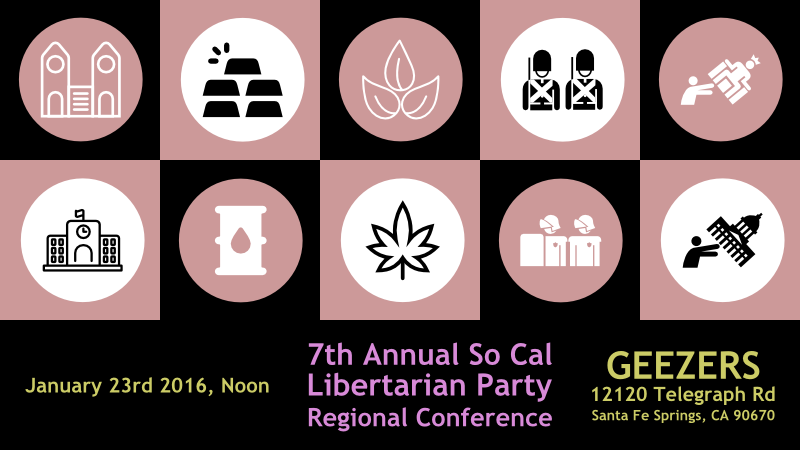Something bothers me around the GMO Foods discussion in libertarian circles and that is that there does not seem to be enough treatment to what responsible and ethical action looks like with the ability to author life and living structure.
I make no arguments that anyone should mistake as a need for government regulation. I am putting out a cry that if we do not better understand how ethical action is manifest in these technologies that pitfalls will not be well understood until too late.
Are there legitimate questions of principle for how GMO Foods are or are not labled?
It is reasonable to assume in light of some 100+ years of fascist implementation that GMO products could be an issue that is used to destroy freedoms wholesale. We know what happens when someone’s irresponsible action causes so much fear in so many that principled social reaction will be impossible. Progressives have already begun influencing the debate and we are failing to answer it. I think that people who express concern over GMOs are doing so on grounds that the liberty movement should be owning, and developing on our own terms.
Let me pose a series of generalized solutions for consideration. Which is more principled? Forced labeling of GMOs, or a social recognition that selling “not salmon” as “salmon” is fraud on the face of it? Is allowing GMO products to be sold as if they were natural products principled?
Currently the law gives genetically modified products the cover of law for selling itself as the natural counterpart as long as they are aesthetically the same. This does not seem like a rational definition of fraud to me… matter of fact it seems like the definition of fraud turned upside down for the convenience of pathological liars. It is glaring in its inconsistency with principled action.
To say that GMO should be able to be sold as its natural look alike, you would have to contend that “natural” versus “not natural” is not a value component of people’s market decisions. For me, just on the face of it “natural” versus “not-natural” is a significant value in that market. The anti-GMO movement is a manifestation of that being true.
The need for principled positions and education
I will leave it to the reader to decide for themselves on GMO marketing, but I also invite you to, while considering a position, that you may have to let go of some perceptions inculcated by the defense of free business. Businesses especially bleeding edge ones are vulnerable to heavy handed regulation. I argue that we libertarians need to find answers to these problems that do NOT involve government action before the progressives use them to erode our rights, and the rights of innovators in the bio-tech space.
Consumers do have a right to demand truthfulness in labeling, and they should be able to seek damages if they are defrauded. But if we do not first, before the fascists do, cause people to feel secure in their market actions we will lose this fight. We must find a principled position on the matter of GMO products, we must find a bright line for what fraud is and is not on the question and educate people on ethical recourse.
Beyond labeling there are other issues that require real examination, what is the principled reaction to weaponized organisms, or organisms that turn out to be dangerous in unexpected ways? What about intellectual property injustices that are widely reported by farmers oppressed by GMO manufacturers using the law for market subjugation – What about the contamination of seed stock with GMO pollen or other such unwanted invasions of genetic material into populations? Is not the legal potential for government licensed monopolization of the food supply not a freedom issue? Where is the libertarian discussion for principle on these subjects?
If we are not more proactively forming solid positions on GMO ethics, I am afraid that we are going to hand the ball directly into the hands of the bad guys on this one, and it is going to entrench government and fascist institutions into greater privilege over an increasingly powerless people stripped of their rights by an incapacity to assert them. It seems like it would behoove us, while we are celebrating these revolutionary technologies and the great men and women who are bringing them; that we should also reflect on how their discoveries are considered within the ethics and responsibilities of releasing forms of automata into the world.
Discussion, and careful, thoughtful responses need formulation
I believe that our ethics are greatly strengthened if we ask some of the tougher questions at our principled allies in these technologies as softballs and get those great minds to demonstrate how common and natural law is enough to protect the public from duplicity in their less principled peers. Moreso, we should invite them to reflect on the ethics of their market interaction, if willing, to set examples of how the good guys do it without guns to their heads.
I would also invite my freedom minded friends to engage in honest rational discussion about what is principled action in the market where engineered lifeforms are introduced as products; and what are the ethical bright lines concerning organisms introduced to the genetic pool of life in general. The war for public opinon on this one is looming. I feel it is going to be critical to our movement’s success with a large segment of people that thoughtful and considered answers are well vetted, understood and ready for memespace.
I might start such a discussion with a strawman assertion such as:
“I contend that if genetic patterns are allowed to have the government privilege of patent, that to maintain the intellectual property, the owner of the privilege must mark all packaging with the patent, and license its use only with the condition that the patent be likewise displayed on the label to maintain the patent from the public domain.”
Then I might promptly abandon that thought as too weirdly close to condoning IP. Thanks all the strawman is burned. IP is too ooky for me to want to even tangentially condone it.
I think that the fraud angle has more merit. I assert this:
“A good piece of fish can be really expensive. If I buy salmon that turns out to be an Eel-Sea Urchin-Salmon homonculous, I should be able to sue the thieves that cheated me.”
Any takers? 🙂








Your first suggestion is better: legal actions for damages should be allowed if food that contains a “substantial amount” of GMO is not labeled reasonably prominently and accurately. You or I could probably make a reasonable start on designing such a law, and aim it mostly at packagers and producers instead of the corner grocery store or food truck. It is doubtful whether regulatory capture will permit administrative agencies to promulgate reasonable rules or elected representatives reasonable laws. Last time I checked, the FDA was hemming and hawing over the fact that “GMO” lacks any standard definition, as if it could not come up with another more useful term, or define the term in a way that is more precise and in line with risks and expectations. The FDA has very little interest in making the mass marketing of GMO food more challenging for the regulated community. However, one can avoid most exposure to GMO food by purchasing USDA “certified organic” food. So there is already (arguably) a pretty effective way for consumers to avoid GMO food today: just buy USDA certified organic food only.
The patent suggestion is interesting but maybe not the best idea, for a number of reasons. For one thing, many foods that contain GMOs would be sold by downstream parties who are not the patent holder. For another, patents are temporary, so the incentive for labeling would expire after a time. Similarly, some subset of GMO foods will never be patented.
Under the current state of U.S. law, the patent holder may lose the ability to obtain treble damages for willful infringement, if failing to properly mark the patented good. So some GMO foods may already be labeled with a patent number. Before you start checking bags of Doritos for patent numbers, know that this rule only applies to sales under the control of the patent holder. So for example, a company with a patent for GMO corn and in the business of selling seed corn will mark packages of the seed corn, but that is where the patent marking ends, usually.
I appreciate hearing that there is a certification that provides some protections for those concerned about GMO foods. I think that a really solid libertarian response involves socially promoting a private certification process, even competing ones. The fact that the one certification that exists is governmental already is pretty good indication that people that are interested in GMO cannot trust government to do a whole job. I think it also worth pointing out that the existence of a government certification monopolizes the certification market, that more precise ones are not manifest in the market because the USDA’s presence makes insertion far too difficult and expensive.
The patent idea is not meant to be a cure all, but it would mean that a GMO producer that wanted would be forced to expose its full nature and inform the market. I figure while we have things like patents, we may as well burden them some with consequences that match the privileges. 🙂
Unfortunately until people stop accepting FRNs it will be risky and expensive to set up a competing certification agency using private capital. Better to invest one’s capital where the government is not already operating . . unless one can figure out some open source way to do it, so certification reputations and infrastructure can grow “organically.” As in so many other areas, building alternative communities may be the best alternative.
I concede. My assertion has changed in an edit above. How does that sum it up? 🙂
Humans have been selectively breeding plants and animals for around ten thousand years. So most of our food has been genetically altered my mankind. Very few of us eat any wild “natural” plants and animals and basically everyone in modern civilization eats mostly organisms whose genes have been selected by humans. Modern manipulation of genes may have some dangers in living animals, but as food our bodies don’t know the difference between “natural” and “GMO”. So no, the government should not require labeling of GMO, nor for that matter should food be allowed to be patented.
The difference between engineered life and life produced through directed natural processes is easily identified and defined. That later would produce a set of small changes over time balanced by evolutionary survival is easily contrasted with the engineering of a life form through direct writing of the instruction set. That people are uncomfortable with the drastic untested changes is reasonable – one does not need proof that something is harmful to find it distasteful or uncomfortable.
Is getting “not corn” when you expect natural corn any different in analysis as fraud than getting certificates for 1,000 shares of 1/1000th each of 1000 tungsten filled gold ingots deposited who-knows-where, when you expected a bar of the pure stuff sent to your depository?
How about if I put grape juice in a Dom Perignon bottle let it sit for a couple weeks and sell it to a wine newbie? If he cant tell the difference, have I defrauded him?
If I sell a ring with a cubic zirconia as a natural diamond have I not committed fraud?
I contend that there is a value to a market segment for natural food over unrecognizable imitations. If accepted I contend that to market a product as being or containing a variety from nature, that is an engineered variety not produced through natural forces is defrauding that segment that looks for that value. The concept of right or wrong is not defined by what one can lie about and get away with through cleverness and guile.
If we can accept that to call selling an imitation as real is fraud, what is the recourse without government? What narrative can libertarians build that shows how our principles protect people from being defrauded?
It’s a thought question. Weirdly, the organic licensing has created a niche of people who vote with their dollars even if they are not sure the produce was in fact naturally produced.
This created a demand for more products who follow that certification to the point where prices are falling rapidly. In my little town, many produce and products cost only 1$ more than it’s “non-organic” counterpart. I would like to be able to make a clear choice when a buy products.
I think the free market solution is entrepreneurs connecting farmers with consumers regardless of geographic location. The tech is there. In the near future, we could have our refrigerator buying our food for us. Delivered to our door from a pre-selected list of farmers we trust (different food providers can bring “bundles of farmers” who have proven track records of delivering non-gmo products for example). Who knows, the grocery store may be the next industry to be disrupted.
I am greatly interested in finding ways of illustrating a libertarian solution in action for GMO foods. Do you know of any organic directories or applications that connect services? It would be nice to point at them and ask people to consider what might happen with more regulation. If the government takes a higher hand with labeling, they may make it so that competing directories of quality must shut down because they are not the “true source” anymore.
The eat local movement that Renaud suggests is an example of community building as an alternative to government certification. Here in LA you can see it in action in communities such as the Arroyo Seco Time Bank, food trading networks and in a more widespread way by grocery retailers who attract a “natural foods” customer base by more carefully sourcing and labeling their wares.
I guess I don’t get it. Products that are non-GMO are already labeled, because the manufacturer would be silly not to… why would they go through all the trouble of sourcing non-GMO ingredients to then NOT advertise it that way? It’s the same with organics. I doubt there’s a single organic product out there that doesn’t shout “I’m organic!” to the consumer.
Furthermore, I’m pretty sure no consumer out there who purchases a product not labeled that way is thinking that it IS organic somehow… Why would they?
You want products that use GMO’s as ingredients to denote GMO-ingredients on a label out front? Or just on the ingredient list in the back?
Maybe I just don’t get the debate, but it seems to me that if you care about consuming GMO’s you already have all the labeling you need in order to ensure you buy that way – the manufacturer of the product needs you to know. Anything else feels pretty… nanny-ish to me. Like you have to warn the rest of the “uninformed” or “unintelligent” consumers about what they’re eating. They likely don’t care… which is proven by the fact that GMO-laden products are still selling. I hate to break it to you, but they’re still selling because people don’t really care, not because they don’t know.
Should I by default figure that whatever I am eating is not the real thing as labeled unless it says non-GMO? I’m not sure I am OK with that. I don’t want to have to run around with a laboratory testing my foods to make sure I am getting what I paid for. A good piece of fish can be really expensive!
I don’t want to have government regulators making up a bunch of laws designed for selective enforcement either. I think that if I buy salmon that turns out to be an Eel-Sea Urchin-Salmon homonculous I should be able to sue the thieves that burned me.
Hmm… Now I really want a good piece of fish 🙂
I thought GMO’s were basically seeds… seeds that grow crops which perform better, and repel insects. Are they lab engineering fake fish? I hadn’t heard that. But I saw a youtube video once where they lab-engineered a hamburger patty. It was disturbing… although a lot of vegetarians thought it was pretty cool. Apparently vegetarians like burgers too. Who knew.
Product labeling is wrought with all kinds of shady advertising… GMO or non-GMO is certainly not the only issue. They sell “juice” all the time, and then it says really small on the bottle “contains 10% fruit juice”. You know what I mean. So I would say, that in answer to your question… yes, you kind of do need to assume that 90% of what you see in the store needs a closer look. I don’t take anything at face value, and I read ingredients lists and evaluate the advertising claims against what I’m really buying. Shopping takes longer, but I don’t really care because it’s important to me. I also don’t think that it’s on me to force other people to care.
If it’s a matter of informing consumers, the government doesn’t really need to get involved, of course. I still feel like if someone cares that much about whether they’re consuming nature-made, or man-made foods, they already have the options to ensure that for themselves.
Folks who don’t care, likely don’t want to have their products marked up with Danger! Warning! Fake Food! Labels all over them… just my 2 cents. 🙂
The bevy of textured tofu and gluten meat substitutes is a big tell for some vegetarians and their pained relationship with meat. I’ve actually seen tofu/gluten chicken wings with simulated Popsicle stick bones… Not tasty… I digress…
The idea of government regulation is way outside of my ethical construct. It is the worst possible model for society enforcing good ideas. More often than not regulations supersede tort law and wind up protecting businesses that are doing scandalous things by creating official loopholes. Environmental regulation does the same thing setting “maximums” for toxic discharges that then become shields from damages if the “small amount” of poison released does still hurt people.
Tort law is descendant of common law. It involves the ability for a damaged party to seek a redress of their claim. It requires some sort of adjudication, and for all that we have experienced, that means a judge and some government. Theoretically, tort law can survive a government breakdown and would need to exist as private entities with voluntary relationships in even the most anarchistic of societies. After all you still have to have conflict resolution even if you do not have government.
I have added a new assertion of libertarian principle to the post. I burn the strawman patent idea as foolish. Thanks to @katy0shae for drawing my focus.
“A good piece of Fish can be really expensive. If I buy salmon that turns out to be an Eel-Sea Urchin-Salmon homonculous, I should be able to sue the thieves that cheated me.”
The whole GMO issue is a big one in our area. I would urge anyone who has an interest in finding out more to watch the documentaries like Food Inc. and Farmageddon, and watch a speech or two by Jeffrey Smith. We saw him at the Heirloom Festival here several years ago, and his presentation convinced me that I needed to understand and protect myself as best I could. With an issue like this, the important thing is to start with myself. In our household, we figure anything NOT labeled non-GMO is GMO, and we don’t buy it. As Joel Salatin says, each food dollar we spend is a vote as to the products we want to support. There are activists in our county who want to ban GMOs and others who want to force the labeling, and so far I have resisted the temptation to sign petitions, because I don’t want to force people who don’t care or who support the idea of GMOs to live the way I do. It’s a dilemma, though.
@leannebaker Thank you for your thoughtful input. Market forces and consumer action is certainly the strongest route to natural justice on the subject of GMO foods. I appreciate that you mentioned some media that we might use to help inform ourselves. I did not find a link for a full version of Famageddon, but here is a link for YouTube pay to view access to the movie Food Inc for $2.99 if anyone cares to pay to see it.
https://www.youtube.com/watch?v=jRp71BwRW8c
May I ask, what do you think of the idea of heightening the “plain old fraud” aspect of GMO food that I propose. Would you agree with my statement regarding “homonculous salmon” at the end of the blog?
More information on Farmageddon is available on http://farmageddonmovie.com. It looks like it is on a bunch of places — it’s not really focused on GMOs per se but on the heavy-handed State involvement in small family farms and the right to choose.
As to the legal path that you lay out, I would look to others who may already be on that path and see whether there is a fit for you. Taking it on by yourself would be incredibly expensive, at least in this country, and probably futile. There is a group called Farm-to-Consumer Legal Defense Fund, but I think that is more focused on the raw milk controversy. I see that Jeffrey Smith has a web site, seedsofdeception.com, and that might be a good place to get more information.
https://www.youtube.com/watch?v=0loQGTQLyO8https://www.youtube.com/watch?v=0loQGTQLyO8
@setfree Thank you for posting that. I was unsure how many of our community might find interest in topic when I wrote it. The response since its posting has been interesting, different than other blog posts. This one has had a lot of discussion traffic, but not as many appreciates. I am still actively pondering what the outstanding .
What are your thoughts on this topic as a reflection on libertarian principles?
I am wondering if you or @leannebaker know of any hardcore liberty networks that are organizing and messaging GMO concerns in libertarian form? I am not much of a joiner in personality and the problem is not as deeply personal to me as it is for many. I do not travel in this space much except to ponder. I would love some education on what other libertarians’ experiences are with the topic in our community overall.
Read Joel Salatin. My favorite books of his are “Everything I Want to Do is Illegal” and “The Sheer Ecstacy of Being a Lunatic Farmer.” Also read Karen deCoster on lewrockwell.com. She writes a lot on these issues. But as to anyone who is focusing on the GMO argument, specifically and exclusively, I am not sure. If you have a passion for this topic, why don’t you see if you can present a paper or a presentation at some of the freedom / liberty conferences, or be invited as a guest on the libertarian podcasts?
Part of why I blog is to extend my understandings by presenting my thoughts, and inviting people to reflect, contrast and compare their own. It is a privilege I find being in the the Liberty.me community. There are so many thoughtful articulate, and diverse personalities and opinions that I get a great and broad understanding for my time invested here, a real education and real wisdom.
A larger more formal and polished work may be forthcoming. There are a lot of freedom topics that interest me and I am a little passionate by nature. For the most part I am working on messaging in this issue, trying to find that core thought or meme that might drive the issue, and a libertarian solution home in people’s minds.
I very much appreciate your input so far and am looking forward to more!
Great Conversation. I really think that the entire populace of the United States is rather ignorant of the who GMO thing. I study this stuff as much as possible. All I know is: I don’t want them! Stay the hell out of my food! When one considers the companies who are pushing the GMO “solution” (Monsanto, Bayer) and then realize these companies were chemical weapons manufacturers, and then add to that the fact that in many cases ex-employees, board members, etc of these same companies are conveniently appointed to high level positions in horrible departments in the government that decide what we are going to eat and whether or not it is safe for us… well, need I say more?!
I say NO! Labeling helps to an extent… but as the writer of this article pointed out… the rules are always changing. Take, for instance, High Fructose Corn Syrup. The Corn Growers Association has seen the awakening of America to this god awful form of “sugar”. They feel threatened. Because of that, they helped push being able to change the name to just “Fructose.” Well, fructose is also a fruit sugar so the public will see fructose on the label of their “Organic Soda Pop” (not yet… but how much do you want to bet) and think… “Oh wow! this soda-pop is good for me!”
As a consumer of food… which we all are… I go through the trouble of doing as much research on the food I purchase as I possibly can. And, when possible I go even one step further and will research the companies that provide the ingredients to make certain products. If I cannot find anything good about a company, it’s practices, etc I just say NO. Period. End of Story. My mantra is, “When in doubt…don’t buy it.” If the label for a loaf of bread has 40 ingredients (some do) and I can’t pronounce half of them… well, it doesn’t get purchased. Real bread has 5 ingredients.
I also do something unheard of in America anymore: I make all of my food from scratch. Just like we used to do just 40 or 50 short years ago. It’ work… but I eat anything I want and don’t gain weight and never get sick. Is it all in my head? I don’t know… but, for me, saying NO has worked.
My point is… I believe an educated consumer can stop much of the GMO going on just by choosing not to participate. The one area that we still have a little bit of freedom is our ability to vote with our currency of choice. It takes awhile longer to bring change… but it does work. Look around at the fast food chains who are sick of losing money and are finally starting to get it. People don’t want plastic in their bread, etc. so… some of these fast food places are going back to making real food again.
I won’t belabor the point. I might have even gone off topic. But, if a person is truly concerned about GMO and the unintended consequences of making Spider-Goats (Look it up!!! they are real) and god only knows what other horrible species cooked up in a lab… then educate yourself, and say NO to anything that isn’t real food. Do the best you can. Do as much of it as you can.
@rds4wysd It is interesting that you mention “real food”. I have never been one to be picky about food, I really like all sorts of tasty things and consider myself fairly well open minded. There are only two things I really dislike in this world and that is grainy pear and canned green beans (unless part of a bean salad… go figure…) But I do have one very important rule, and that is that if I cannot look at my food and KNOW what plant or animal it comes from, I don’t want to eat it – pretty simple.
I have to have some level of faith that the food I am eating is genuinely the food listed on the label. That I have no recourse for being lied to about what I am sold is the exact problem with using regulation to solve problems. In any sane world, where corporations are not allowed to use the law as a tool, any of us should be able to call a man who commits fraud out and demand to be made whole. But we cannot. Administrative judges in places like the FDA interpret exploited law according to political favor. I believe we are far more likley to get justice should instead have the matter in front of our peers.
Regulation protects evil doers more often than the public. The public may be slow to get it sometimes. Juries are not perfect, but I trust my neighbors over a bureaucrat any day to make just decisions.
https://www.youtube.com/watch?v=BF_nL-X50wE
https://www.youtube.com/watch?v=LqfAXOcmezY&t=16
It’s not meant to be good for you, it’s meant to be bought!
John B. Wells
Thanks, Jimmy, for posting these. I love Dr. Mercola’s passion, and I follow much of what he does. He was a keynote speaker at our Heirloom Festival here last summer. From a liberty standpoint, this interview solidified my position that taking a legal route against GMOs would be futile. The system is just too corrupt. It is kind of disheartening that the lawyer did not see this; he continues to believe that if the President could see the light, he could change the FDA and get it back to “protecting” us. However, Dr. Mercola seems more focused on doing what he does best — getting the word out.